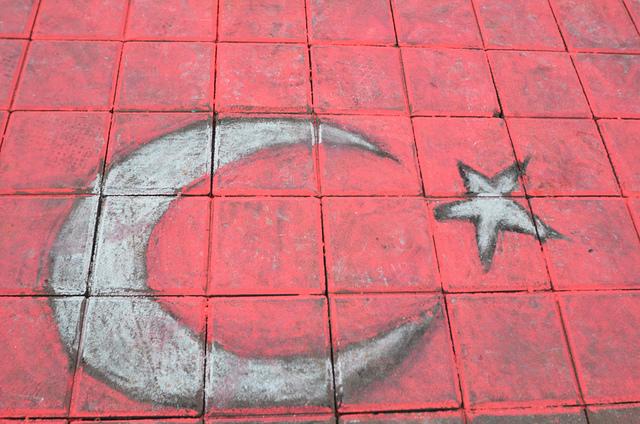
Military coups—successful or otherwise—follow a predictable pattern in Turkey. Political groups—typically Islamists—deemed by soldiers to be antagonistic to Kemal Ataturk’s vision of a secular Turkey gain increasing power. Tensions rise, often accompanied by violence on the streets. Then the military steps in, exercising what the soldiers claim is their constitutional power to restore order and secular principles.
This time, it was very different. Thanks to a series of sham trials targeting secularist officers, President Recep Tayyip Erdogan had managed to reconfigure the military hierarchy and place his own people at the top. While the country has been rocked by a series of terrorist attacks and faces a souring economy, there was no inkling of unrest in the military or opposition to Erdogan. On the contrary, Erdogan’s recent reconciliation with Russia and Israel, together with his apparent desire to pull back from an active role in the Syrian civil war, must have been a relief to Turkey’s top brass.
No less baffling was the almost amateurish behavior of the putschists, who managed to capture the chief of the general staff but apparently made no meaningful attempt to detain Erdogan or any senior politicians. Major television channels were allowed to continue to operate for hours, and when soldiers showed up in the studios, their incompetence was almost comical.
Planes strafed civilians and attacked the parliament—very uncharacteristic behavior for the Turkish military outside areas of Kurdish insurgency. Social media were full of pictures of hapless (and apparently clueless) soldiers being pulled out of tanks and disarmed (and sometimes much worse) by civilian crowds—scenes I never thought I would see in a country that’s come to hate military coups but still loves its soldiers.
Erdogan was quick to blame his former ally and current nemesis, the exiled preacher Fethullah Gülen, who leads a large Islamic movement from outside of Philadelphia. There are obvious reasons for taking this with a grain of salt, but the claim is less outlandish than it may seem. We know that there’s a strong Gülenist presence in the military (without which the government’s earlier move against senior Turkish officers—the so-called Eregenekon and Sledgehammer cases—couldn’t have been mounted). In fact, the military was the last remaining Gülenist stronghold in Turkey, since Erdogan had already purged the movement’s sympathisers in the police, judiciary, and media.
We also know that Erdogan was preparing to make a major move against the Gülenists in the military. A few officers had already been arrested for fabricating evidence in earlier trials, and it was rumored that a large-scale purge of Gülenist officers was in the works for next month’s meeting of the Supreme Military Council.
So the Gülenists had a motive, and the timing of the attempt supports their involvement. It’s a supreme irony that the coup Erdogan long feared from the secularists may have eventually come from his one-time allies—who themselves were responsible for fabricating myriad coup plots against Erdogan.
Yet a bloody military coup lies very much outside the traditional modus operandi of the Gülen movement, which tends to prefer behind-the-scenes machinations to armed action or explicit violence. The coup may have been a desperate last-ditch effort, given the prospect that they were about to lose their last stronghold in Turkey. But, with so many unanswered questions about what took place, the emergence of many strange twists and turns in the coming weeks would be no surprise.
There’s less uncertainty about what’s likely to happen next. The coup attempt will add potency to Erdogan’s venom and fuel a wider witch-hunt against the Gülen movement. Thousands will be sacked from their positions in the military and elsewhere, detained, and prosecuted with little regard for the rule of law or the presumption of innocence. There are already alarming calls to bring back the death penalty for putschists, which recent experience shows is a very broad category for Erdogan. Some of the mob violence against captured soldiers portends a Jacobinism that would jeopardize all remaining due-process protections in Turkey.
The coup attempt is bad news for the economy as well. Erdogan’s recent, somewhat skin-deep reconciliation with Russia and Israel was likely motivated by a desire to restore flows of foreign capital and tourists. Such hopes are now unlikely to be realised. The failed coup reveals that the country’s political divisions run deeper than even the most pessimistic observers believed. This hardly makes for an attractive environment for investors or visitors.
But, politically, the failed coup is a boon for Erdogan. As he put it while it was still unclear if he was going to emerge on top, ‘this uprising is a gift from God to us because this will be a reason to cleanse our army’. Now that the coup has failed, he will have the political tailwind to make the constitutional changes he’s long sought to strengthen the presidency and concentrate power in his own hands.
The coup’s failure will thus bolster Erdogan’s authoritarianism and do little good for Turkish democracy. Had the coup succeeded, however, the blow to democratic prospects surely would have been more severe, with longer-term effects. That provides at least some reason to cheer.